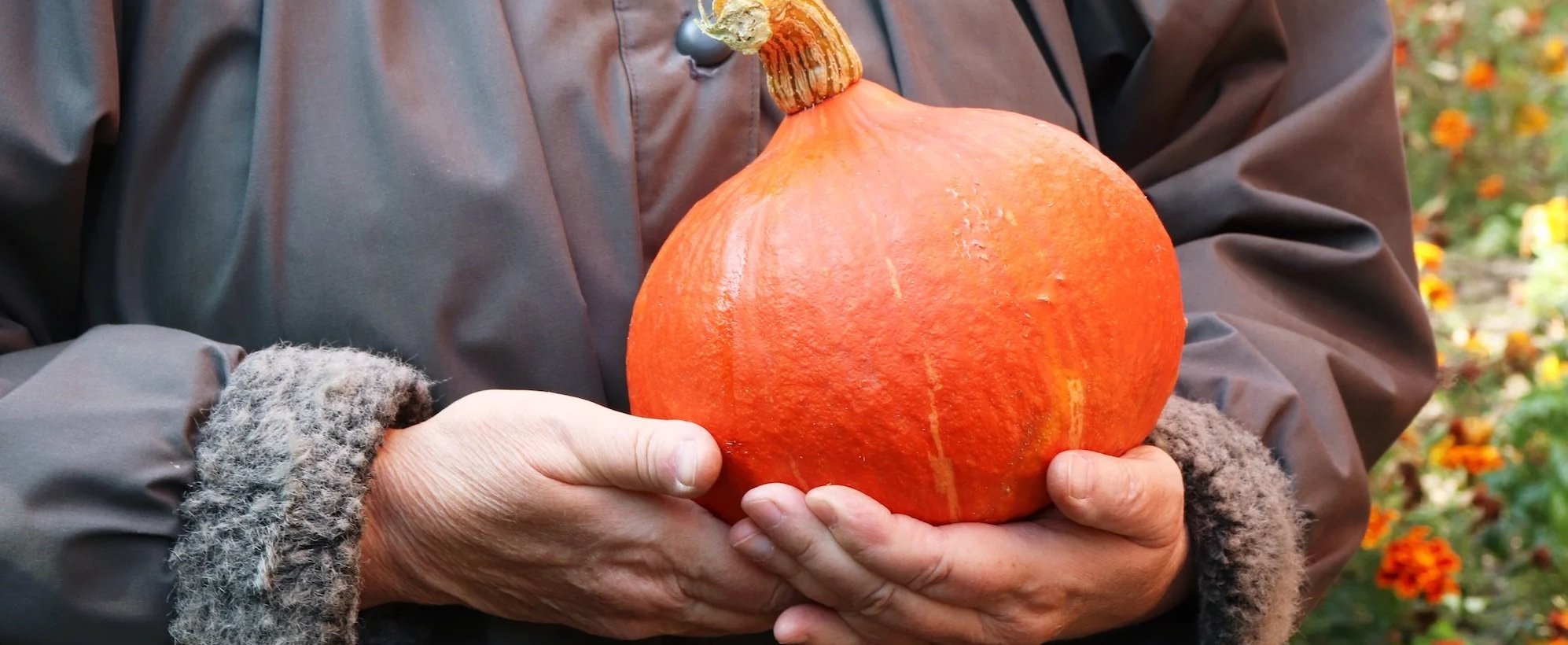Halloween can be a magical time for many, especially if you have young children or grandchildren who are excited to dress up and go trick-or-treating. It marks the transition to autumn too – the time for comforting soups and stews, watching the leaves change colour, and wrapping up warm to enjoy crisp mornings.
However, some older people can find Halloween a difficult time. The darker evenings and unexpected visitors can be distressing for those living alone or with dementia. We’ve shared some tips for helping everyone experience this time of year in a way that’s comfortable and safe for them. This is not an exhaustive list but may help you and your family feel more confident come the 31st of October.
Why Halloween can be difficult for older people
There are many reasons why an older person may find Halloween uncomfortable or even frightening. Shouting in the streets – happy or not – can put people on edge, or bring back bad memories or fears.
Constant knocking at the front door or the doorbell always going may be stressful too, especially if it’s loud or unexpected. For older people with physical limitations, having to keep getting up to answer the door may increase their risk of falls or injury. Or, once an older person has made it to the door they may feel intimidated if they’re faced with a large group of older children.
For people with dementia, Halloween can be a scary time for a range of different reasons. Routine is really important to someone living with dementia. Unexpected visitors dressed up in strange costumes can be confusing and may trigger difficult behaviours. Changing the environment around them with scary decorations – whether inside or out – may add to this confusion, or lead them to misinterpret what’s happening around them and feel in danger.
How to support a loved one or feel safe yourself this Halloween
There are a number of things you can do both in the lead-up to Halloween and on the night itself to reduce safety risks. However the below are just suggestions, they may not work for everyone but can be a good place to start.
1. Keep the floors and entryways clear, and check any mobility aids are in proper working order so your loved one can safely reach the door if they wish to.
2. Invest in a personal alarm. A lot of these devices can be worn on a pendant around the neck or on a wrist bracelet, and allow the wearer to call for help from a loved one or the emergency services with a touch of a button, should they feel in danger.
3. Arrange for someone to come over and sit with a loved one for a few hours. Most trick-or-treating will likely happen between 6 pm and 9 pm – although this may differ in certain areas.
Find your ideal carer with Elder
Find your ideal carer with Elder
Looking for additional support over the Halloween period? We’ll connect you to self-employed carers nationwide for short term live in care for 3+ days.
Looking for additional support over the Halloween period? We’ll connect you to self-employed carers nationwide for short term live in care for 3+ days.
- Choose your own carer from suitable matches
- Get everything in place in 24 hours
- We also offer regional visiting care services for lower care needs
- Choose your own carer
- Get care in 24 hours
- Visiting services available
4. If you deem it safe to do so you may wish to turn off outdoor lights and draw the curtains to suggest no one is home.
5. Use a video doorbell, spy hole, or door chain to check who’s at the door before opening it properly. Ensure your loved one knows they only need to open the door if they feel comfortable doing so, and that they shouldn’t feel pressured.
6. If you expect a lot of children will be trick or treating in the area unaccompanied, it may help to put a bowl of sweets outside at the end of the driveway or garden path, to deter them from coming up to the door.
7. Try distracting a loved one from the noise outside by engaging in conversation, putting on some favourite music, or enjoying a classic movie marathon.
Supporting someone with dementia at Halloween
Again, the below advice may not work for everyone but can be a good place to start to help a loved one stay as comfortable as possible over Halloween.
8. Limit decorations if they’re likely to cause confusion and agitation, or change how the house looks. Interactive decorations that make noises or have flashing lights can be particularly confusing to some people.
9. Consider what they may end up watching on television as many channels will be showing horror movies or unsettling shows. You may wish to block certain channels if it’s possible. Put on a favourite DVD, or keep them busy with quiet activities like reading, sewing, or reminiscing by looking at their favourite family pictures.
10. Try playing calming music to help distract from any unusual noises outside.
11. Focus on it being autumn rather than Halloween and do some seasonal crafts or tactile games. Some seasonal activities for dementia may include –
-
- Baking and decorating homemade treats together using season ingredients such as apples or squash
- Creating art with, or pressing fallen leaves and twigs collected from the garden or local park
- Playing a sensory guessing game where your loved one can identify autumnal items like cinnamon sticks, different types of leaves, or pinecones.
How to support older people in your community
We don’t just have a responsibility to our loved ones this Halloween. We can all do our part to help every elderly person in our community feel safe.
12. If you’re going trick-or-treating, avoid houses that don’t look like they’re taking part. Houses without decorations or pumpkins outside, or with the porch light off could indicate they wish to be left alone.
13. If you know an older or particularly frail person lives at a certain house it’s best to avoid knocking on their door.
14. Only knock or ring a doorbell once. If there’s no answer respect their decision not to come to the door and move on.
15. Be careful not to make too much noise after dark.
16. Unfortunately some people use Halloween as an excuse to ‘prank’ people, such as throwing eggs or toilet paper at their homes or in their gardens. If you see anyone engaging in anti-social behaviour or doing something that could upset an older person, call the non-emergency police on 101 for advice.
Read more later life articles
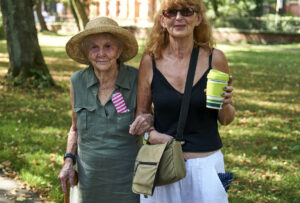
12 summer safety tips for the elderly
It’s important for everyone to take care in hot weather – anyone can become unwell if they’re exposed to soaring temperatures. However, for older people
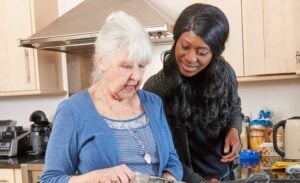
Live-in care vs other types of care
Live-in care vs other types of care Navigating elderly care options for a loved one is a significant decision. While care homes are a common

Defining Dignity in Later Life – Interview with Liz Lloyd
We talked to Liz Lloyd about personal and social perceptions of age, the challenges of identity, empowerment and choice.

The Challenges of Vegetarians and Vegans Living with Dementia
We talk to Amanda Woodvine about the challenges faced by older vegetarians and vegans receiving care. Read more here.
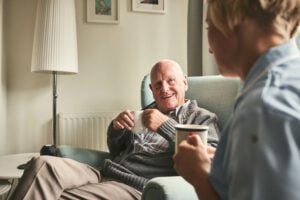
How much does live-in care cost?
How much does live-in care cost? Live-in care provides one-to-one support in the comfort of your loved one’s home, but how much does it cost?
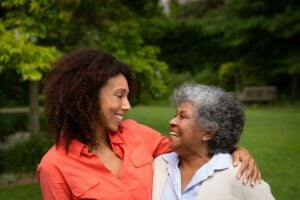
How much does respite care cost?
Respite care offers short-term relief for primary carers, and the cost can vary widely depending on the type of care, location, and level of support
